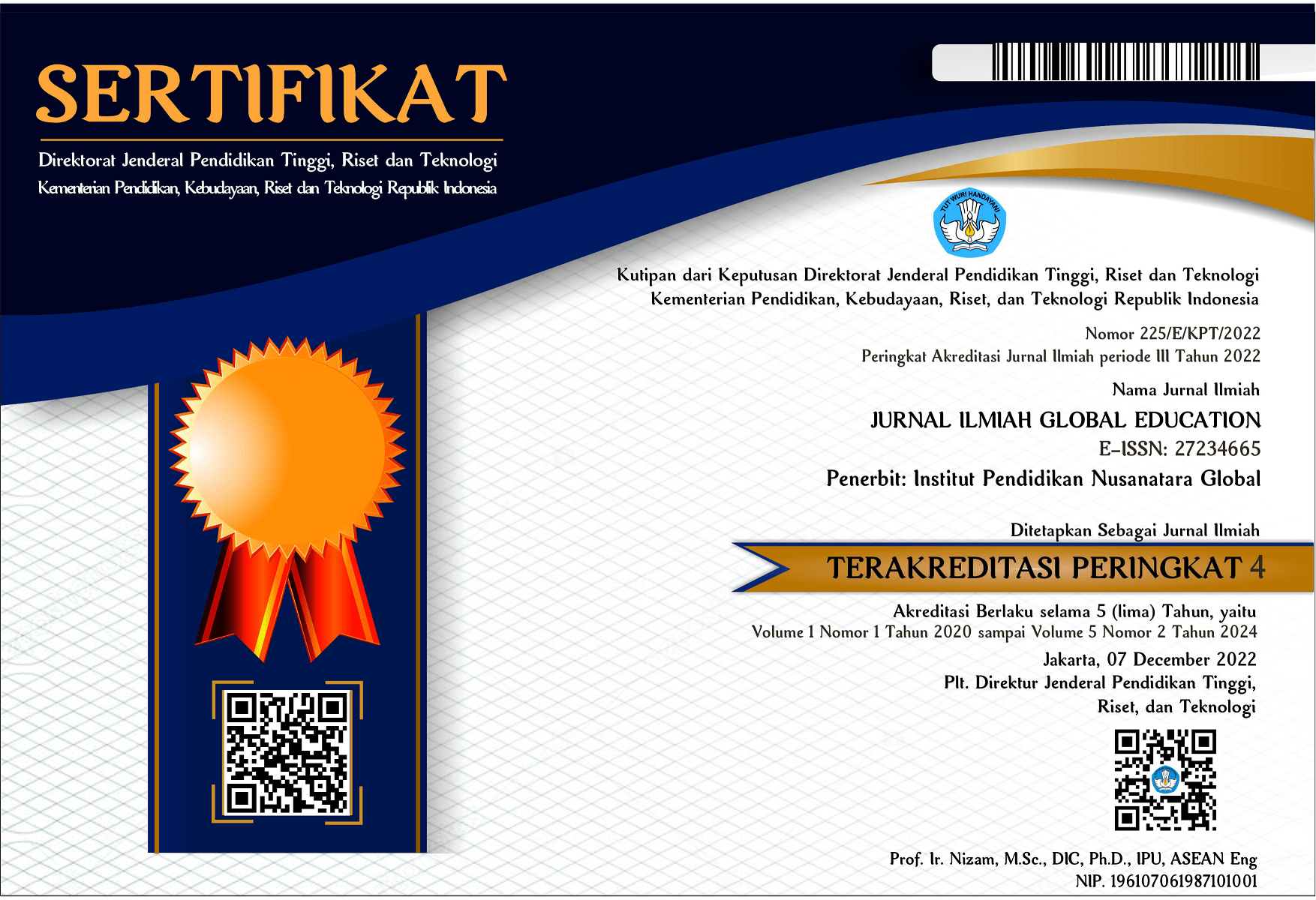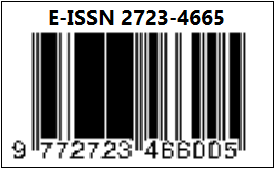COMMUNITY PERSPECTIVE ON THE WASTE MANAGEMENT SYSTEM IN LAMBANGSARI BEKASI VILLAGE BASED ON SMART GARBAGE ROBOTS
DOI:
https://doi.org/10.55681/jige.v4i2.570Keywords:
Management, Sorting, waste, robotsAbstract
Garbage is an unavoidable part of everyday life. Everyone has to take out the trash. Therefore, waste is a major source of problems that directly affect the environment. Moreover, waste management in Indonesia is definitely not good. Most of the waste is thrown away without being sorted. This also ultimately contributes to the complexity of the waste problem. This research was conducted to determine the perception of the waste management system in the village of Lambangsari Bekasi by utilizing intelligent robots based on IoT (Internet of Things). The survey method used is an online questionnaire filled out by 100 people from the age range of 20-25 years. Respondents consist of students, students to workers. The collected data were analyzed using descriptive statistical analysis techniques. The results obtained from the analysis data are that most of the waste management in Indonesia is not appropriate because of the very low knowledge of understanding waste management by utilizing the latest technology, one of which is IoT-based intelligent robots. In addition, the government also does not educate the public about the importance of sorting waste by type and also does not socialize the movement to dispose of waste.
Downloads
References
Aryani, D. I. (2012). Tinjauan Desain dan Pengaruh Warna Tempat Sampah secara Psikologis serta Dampak yang Ditimbulkan terhadap Kehidupan Sosial Masyarakat dalam Konteks Lingkungan Hidup (Studi Kasus di Kota Bandung). Zenit, 1(1), 45-55.
Astuti, W. (2015). Peran Sampah B3 Rumah Tangga (Household Hazardous Waste) Dalam Peningkatan Global Warming. Prosiding SNST Fakultas Teknik, 1(1).
Budiharto, H. (2018). Perancangan dan Pembuatan Prototype Gerobak Pengangkut Sampah yang Ergonomis dengan Memperhatikan Jenis Sampah.
CNN Indonesia. 25 April, 2018. Riset: 24 Persen Sampah di Indonesia Masih Tak Terkelola. diunduh dari https://www.cnnindonesia.com/gaya hidup/20180425101643-282-
/riset24-persen-sampah-di- indonesia-masihtak-terkelola.
Diakses pada tanggal 9 Desember 2019.
Dellavalerin, N. C. (2019). Green Sister City Surabaya-Kitakyushu (Studi Evaluasi tentang Program Pengolahan Limbah Sampah) (Doctoral dissertation, Universitas Airlangga).
Faizah (2008) Pengelolaan Sampah Rumah Tangga Berbasis Masyarakat (Studi Kasus Di Kota Yogyakarta). Semarang. Program Magister Ilmu Lingkungan Program Pasca Sarjana Universitas Diponegoro.
Fitriana, A. (2017). Perilaku Ibu Rumah Tangga Terhadap Pengelolaan Sampah di Desa Bluru Kidul Rw 11 Kecamatan Sidoarjo Tahun 2011 (Doctoral dissertation, Universitas Airlangga).
Garbage Disposal Recycling – South Korea www.korea4expats.com. Diakses pada tanggal 9 Desember 2019.
Hendra, Y. (2016). Perbandingan Sistem Pengelolaan Sampah di Indonesia dan Korea Selatan: Kajian 5 Aspek Pengelolaan Sampah. Jurnal Aspirasi, 7(1), pp.77-91.
Hernawati, D. (2013). Partisipasi Masyarakat Dalam Pengelolaan Sampah Berbasis 3R (Reduce, Reuse Dan Recycle) (Studi Pada Tempat Pengelolaan Sampah Terpadu Di Desa Mulyoagung Kecamatan Dau Kabupaten Malang). Jurnal Administrasi Publik, 1(2), pp.181- 187.
Hidayat, R. (2017). Bak Sampah Otomatis Berbasis Robot Line Follower Sebagai Sarana Kemudahan dalam Membuang Sampah di Rumah Sakit. Barometer, 2(2), 70-77.
Kim, Ryan (2017). How to Dispose the Garbage in Korea. Livinko Relocation Services-Relocation and Visa for Korea.
Mulyadi, A., Husein, S., & Saam, Z. (2020). Perilaku Masyarakat dan Peran Serta Pemerintah Daerah dalam Pengelolaan Sampah di Kota Tembilahan. Jurnal Ilmu Lingkungan, 3(2).
Putra, I.B.S. (2019). "Peran Serta Desa Adat dalam Pengelolaan Sampah di Kota Denpasar." Vyavahara Duta: Jurnal Ilmiah Ilmu Agama dan Ilmu Hukum, 14(1), pp.58-67.
Setiadi, A. (2015). Studi Pengelolaan Sampah Berbasis Komunitas pada Kawasan Permukiman Perkotaan di Yogyakarta. Jurnal Wilayah dan Lingkungan, 3(1), pp.27-38.
Suryati, T. (2009). Bijak dan Cerdas Mengolah Sampah. AgroMedia.
Tim Penulis PS. (2010). Penanganan dan Pengolahan Sampah. Penebar Swadaya Grup.
Tchobanoglous, G., H. Theisen dan R. Eliassen. 1977. Solid Wastes : Engineering Principles and Management issues. Mc Graw Hill. Kogakusga Ltd. Tokyo.
Umum, P., & al SPM, B. K. (1994). Pengelolaan Sampah di Permukiman. Revisi SNI, 03-3242.
Wardi, I. N. (2011). Pengelolaan Sampah Berbasis Sosial Budaya: Upaya mengatasi masalah lingkungan di Bali. Bumi Lestari Journal of Environment, 11(1), pp.167-177.
What Australia can learn from world's best and worst recyclers. SBS News. https://www.sbs.com.au/news/what- australia-can-learn-from-world-s- best-and-worst-recyclers
Diakses pada tanggal 9 Desember 2019.
Downloads
Published
How to Cite
Issue
Section
License
Copyright (c) 2023 JURNAL ILMIAH GLOBAL EDUCATION

This work is licensed under a Creative Commons Attribution-ShareAlike 4.0 International License.













